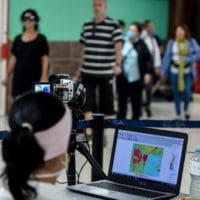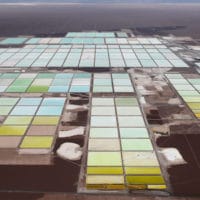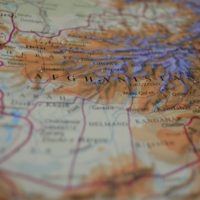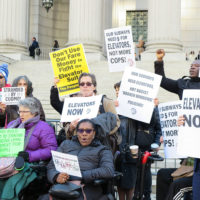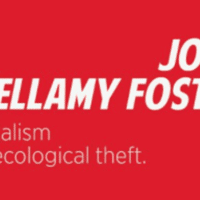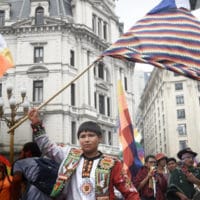-
Covid-19 as symptom: Notes on the production of a virus
These days we hear a lot about the symptoms of Covid-19 (dry cough, high fever, etc.). Conversely, there is much less discussion of the virus as a symptom. To intervene on the symptoms of the virus it is necessary not only to have specific scientific knowledge, but also to put in place a serious reflection on the structural causes of its global spread and, with them, the possibilities of change.
-
The fatalistic view from an ER Nurse on what’s ahead
Being an ER Nurse, a lot of people have asked me what I think about COVID-19. I almost inevitably tell them- first and foremost- that I really can’t overstate how much of a problem it is that we don’t have enough personal protective equipment (PPE).
-
Fighting COVID-19 in Cuba, China and the United States
The pandemic has effectively provided a laboratory-like demonstration that people do better when states can plan ahead, apply national resources unequivocally to the public good, put science in the service of the people, and practice international solidarity. These are characteristics of socialist societies.
-
UN Chief warns of coming recession for the Planet
Bumping elbows at the United Nations.
-
Mike Davis on COVID-19: The monster is finally at the door
We are in the early stages of a medical Katrina. Despite years of warnings about avian flu and other pandemics, inventories of basic emergency equipment such as respirators aren’t sufficient to deal with the expected flood of critical cases.
-
12 ways the U.S. invasion of Iraq lives on in infamy
While the world is consumed with the terrifying coronavirus pandemic, on March 19 the Trump administration will be marking the 17th anniversary of the U.S. invasion of Iraq by ramping up the conflict there.
-
Testimony of a surgeon working in Bergamo, in the heart of Italy’s coronavirus outbreak
In one of the non-stop e-mails that I receive from my hospital administration on a more than daily basis, there was a paragraph on “how to be responsible on social media”, with some recommendations that we all can agree on.
-
Elon Musk is acting like a neo-Conquistador for South America’s lithium
Elon Musk, the head of Tesla, wants to build an electric car factory in Brazil. He was supposed to meet Jair Bolsonaro, the president of Brazil, in Miami in early March, but he was too busy; instead, Musk will go to Brazil sometime this year.
-
Yellow-caking an epidemic: New York Times spreads the virus of hatred, again
In a repeat of the gutter journalism used to justify the 2003 Iraq War, the New York Times has had to “yellow-cake” up a foul brew of innuendo, half-truths, misrepresentations, outright lies—spiked fiercely with stereotypes, racial hatred, and red-baiting—to makes its case for a China “cover-up.”
-
Dossier no. 26: Frantz Fanon: The brightness of metal
Frantz Fanon was born on the Caribbean island of Martinique on 25 July 1925. He died in the United States, from leukaemia, on 6 December 1961. He was thirty-six years old.
-
Witnessing the hell that a migrant can face
The Saudi-UAE war on Yemen has been going on for five years. Despite recent peace talks leading to an improvement in aid distribution, the violence has escalated in certain key districts of Yemen over the past two weeks. Since January, 35,000 Yemenis have been displaced from their homes, an indicator of the dangerous situation in the country.
-
Is the World about to witness the end of the war in Afghanistan?
Neither the Indian political leadership nor the “deep state” seems to grasp that the geopolitics of the South Asian region is transforming with far-reaching consequences.
-
Breakthroughs
The right-wing menace, its violence and threat of a genuine fascist take-over, is far from ceasing with the happy ending of a Grimm fairy-tale. Thuringia is where the Nazis gained their first foothold in 1930 and the AfD leader here today, Bjorn Hoecke, is the most vicious and dangerous man in Germany.
-
Elevator Protest: The wheels of justice grind much too slowly for These New Yorkers
Just below the steps leading to the engraved words of George Washington “The true administration of justice is the firmest pillar of good government”, members of the People’s MTA, Rise and Resist’s Elevator Action Group, Disabled In Action, The Peoples Power Assemblies NYC were demonstrating for their right to justice.
-
For the climate: protecting the Commons and fixing Democracy
Climate change, unchecked, promises planetary disaster. All forms of life are threatened. Scientific evidence strongly suggests capitalistforms of production and consumption gave rise to climate change in the first place and have allowed the process to advance.
-
1131: Capitalism and ecological theft
Sociologist John Bellamy Foster on the modern divide between humanity and nature and his book “The Robbery of Nature: Capitalism and the Ecological Rift” from Monthly Review.
-
How India’s Modi is playing on Trump’s ego to his advantage
One thing about U.S. President Donald Trump is that he can be brutally frank. Trump recently picked up the phone and called British Prime Minister Boris Johnson to convey his displeasure over the latter’s decision to allow Huawei to operate in the UK despite Washington’s repeated urgings.
-
Standing up for Left literature—In India, it can cost you your life
On February 16, 2015, Govind and Uma Pansare went for a morning walk near their home in Pune (Maharashtra, India). Two men on a motorcycle stopped near them and asked for directions, but the Pansares could not help them; one of the men laughed, removed a gun, and shot the two. Uma survived the attack but Govind died in a hospital on February 20, 2015.
-
The Iowa fiasco and the Democrats’ shadowy plot to stop Bernie
Yogi Berra, the great Yankees catcher, had the memorable line, “It’s like deja vu all over again.” Bernie Sanders supporters might have been thinking the same thing after the fiasco of the Iowa caucuses.
-
Bolivia: An election in the midst of an ongoing coup
On May 3, 2020, the Bolivian people will go to the polls once more. They return there because President Evo Morales had been overthrown in a coup in November 2019.



